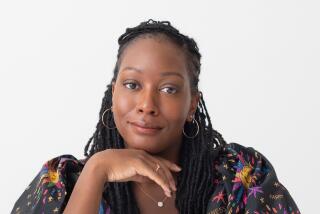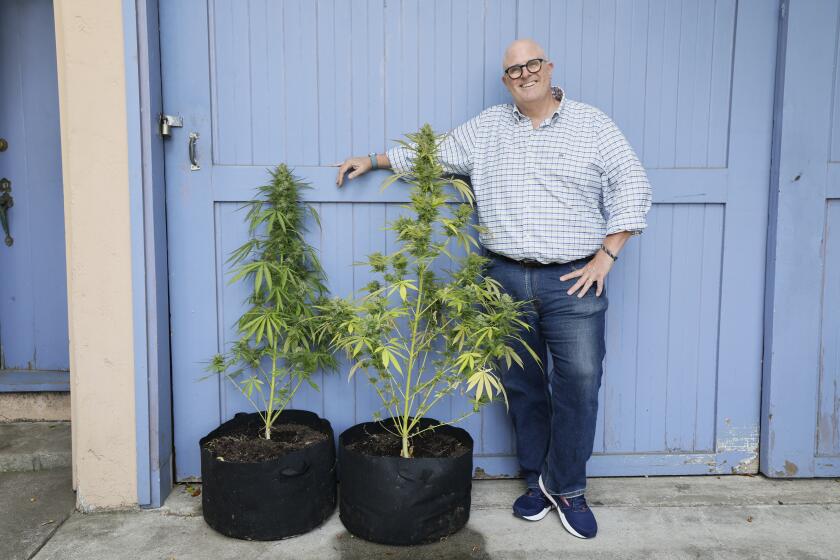Seminar Deals With ‘the Mother We Didn’t Choose’
Remember those TV moms of days gone by whose only mission in life--besides baking cookies--seemed to be demonstrating infinite patience and understanding as their children got into one scrape after another?
You’ve probably even fantasized having that kind of mom--someone who’s always ready to listen when you need to talk, who makes you feel you can do no wrong and never runs out of praise or encouragement.
If you were raised by a mother who was this attentive and nurturing, consider yourself lucky. For many, there’s a painfully wide gap between the idyllic Hollywood image of mothers in the “Leave It to Beaver” era and the maternal influence in their own lives.
When those who attended a recent seminar called “Healing the Mother-Daughter Wound” were asked to describe their mothers, they came up with such adjectives as: judgmental , overprotective , controlling , non-communicative , selfish , depressed , volatile , helpless , bitter .
And most said that their relationship with their mother today is strained by anger, sadness and fear related to the way they were treated as children.
*
Claire Frazier-Yzaguirre, an Irvine marriage, family and child counselor, designed the seminar for women who have suffered maternal abuse, whether it was overt physical mistreatment or more subtle but equally devastating emotional trauma.
Frazier-Yzaguirre, who presented her seminar at the Mariposa Women’s Center in Orange, stressed in an interview that it’s vital to resolve the pain in the mother-daughter relationship--”to deal with the mother we didn’t choose”--in order to “move beyond who mom is and become a different kind of woman.”
She cautioned that those who don’t heal the “mother-daughter wound” are liable to carry their pain and anger toward mom into other relationships.
Victoria Secunda, author of “When You and Your Mother Can’t Be Friends,” pointed out in her book that, for those struggling with the impact of their mother’s shortcomings: “The ‘cure’ comes in being able to become a loving mother to oneself--and to one’s children--in spite of having a poor role model upon which to pattern maternity.
The victory is in choosing not to be victims of the past but, instead, in breaking the cycle of unhappy mother-daughter connections as they echo in all our attachments.”
*
According to Secunda, those who bury their pain and fail to resolve their relationship with their mother tend to:
- Form friendships with people who share their mother’s most destructive qualities.
- Reject or hurt people who remind them of their mother.
- Marry someone like their mother.
- Turn to their own children for the love they couldn’t get from their mother, becoming more of a pal than a parent.
- Allow their mother to exercise excessive influence over their adult life.
Frazier-Yzaguirre has seen enough success stories to be optimistic that women can move “beyond survivorship” and break away from such self-defeating patterns. “The pain is excruciating in many people’s lives, but they can heal,” she said.
First, however, they must let go of their fantasy image of the mother they’ve always wanted.
“The fantasy is like a security blanket--it shields us from pain,” Frazier-Yzaguirre explained. “As children, we’re very vulnerable. We have to fantasize as a way of surviving. But when we get big, we have to put the fantasy aside. If we hang onto it, we won’t move into adulthood. We have to get into a safe place where we can risk opening our eyes so we can see reality and deal with the pain.”
The therapist told the 50 or so women who attended her seminar that it’s important to understand what kind of home environment their mother created when they were a child and how they have reacted to it as an adult.
For example, she asked: Were you raised in a home that was excessively rigid or totally chaotic? Was your mother detached emotionally or enmeshed to the point of being smothering?
At any of these extremes, children feel the pain of abandonment because their needs are not being met, Frazier-Yzaguirre said. And as adults with a family of their own, they tend to respond either by repeating the pattern they were raised with or trying so hard to avoid it that they go to the opposite extreme.
*
Patti, a 50-year-old Orange County resident who attended Frazier-Yzaguirre’s seminar, said she went too far in her efforts to avoid making her mother’s mistakes with her own two children.
“My mother was emotionally distant, and I became very enmeshed in my children’s lives,” said Patti, who has been divorced for 12 years.
She believes that her excessive involvement in her daughters’ lives contributed to the serious eating disorders both suffered as teen-agers.
“I had to learn to back off and let my children grow up,” she said.
That was difficult to do because her own unmet needs kept getting in the way. Patti now understands that her mother’s emotional detachment left her with an insatiable hunger for approval and that her neediness hindered her in all her relationships.
While insisting on too much closeness with her children, she was finding ways to sabotage her relationships with men. Her fear of not measuring up caused her to drive away anyone who got too close, she said.
Patti, who has been seeing a therapist for a number of years, said she has made significant progress in her effort to learn how to have healthy relationships.
“I’m learning to be my own person,” she said. However, she added, “even though I’m a grown woman and my mother is 82, it still bothers me when she doesn’t approve.”
But she no longer allows her mother’s disapproval to stop her from doing what she feels is right for her, and she has deliberately limited the amount of contact she has with her mother so that she can lead her own life.
After working through a lot of anger, Patti can now say, “I feel a deep love for my mother.”
She unearthed that feeling in the process of writing a thank-you letter to her mother several years ago: “The letter was about all the good things she did for me when I was a kid because for so many years there was so much resentment about what she didn’t do. The letter helped me free myself from the expectations of what she should be and accept her for who she is.”
Patti’s letter to her mother represented a crucial step toward healing: letting go of blame.
Like the fantasy image of mother, blame serves as “an anesthesia against pain,” Frazier-Yzaguirre noted. “It’s easier to blame than to assume responsibility for your life and move on.”
*
Those who are able to let go of blame are more likely to find their way to forgiveness.
Monique, a 46-year-old seminar participant who is married and has a grown daughter, said she had to forgive her mother in order to put her unhappy childhood behind her.
“I always felt unwanted, unloved and alone,” admitted Monique, who was raised in France and Germany and spent the first five years of her life with her grandparents. She doesn’t know why her parents relinquished her during those early years, but she remembers feeling as cut off from them emotionally when she was with them as when they were apart. She said both her mother and father were alcoholics.
Her mother vacillated between neglect and violence. She was totally permissive with Monique most of the time, but about every six months, some small thing would set her off. Monique could never predict what it would be.
“She would hit me severely,” Monique recalled, “and I felt I was getting anger not only from what I had done just then, but also from past things I had done. It made me very afraid.”
As an adult, Monique has had difficulty allowing people to get close to her; loving and being loved has always been “very scary” to her, and she’s had a tendency to assume she’s at fault whenever anger erupts in a close relationship.
Monique has been getting help through a 12-step recovery program for adult children of alcoholics, and she says that, while progress has been slow, she’s gradually gaining a growing sense of freedom from the destructive influence that she felt even after her mother’s death.
“It’s like I’m waking up or being reborn. I feel like Rip Van Winkle,” she said.
Part of her awakening has been realizing that her mother “really did love me, though she wasn’t able to express it.”
“When I was able to understand that she did the very best she knew how to do, I was able to forgive her.”
Monique said the people she has met in support groups through her 12-step program have helped her find the courage she needed to confront the trauma in her childhood.
*
Everyone who’s nursing a “mother-daughter wound” needs supportive relationships in order to work through their pain and make affirmative changes in their life, Frazier-Yzaguirre stressed in her seminar.
Often, a step toward healing leads to a deeper level of pain, she noted. “There are no shortcuts. The stronger your support systems, the deeper you can go.”
Having family, friends or a support group to turn to also helps women abandon futile efforts to get their mothers to change. “If you go back to the place where you got ripped off and beg for what you didn’t get, you’re setting yourself up to get ripped off again,” Frazier-Yzaguirre cautioned.
Dealing with the trauma in an unhealthy mother-daughter relationship is like going through the stages of grief--including denial, anger, depression and acceptance--only “what you’ve lost is your childhood,” the therapist observed.
She believes the willingness to press on and get through all these stages no matter how much it hurts is an affirmation of self-worth: “It’s saying, ‘I am so important that I’m to be healed in this area so I can live life to the fullest.’ ”
More to Read
The complete guide to home viewing
Get Screen Gab for everything about the TV shows and streaming movies everyone’s talking about.
You may occasionally receive promotional content from the Los Angeles Times.






